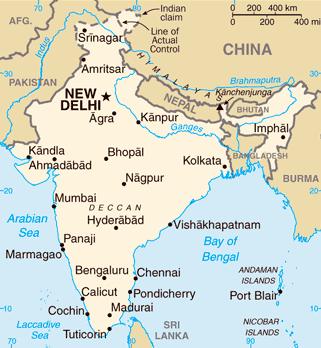NEW DELHI -- The series of deadly bomb blasts that shook India's capital on Sept. 13 has prompted some of the usual finger pointing at Pakistan, but most evidence suggests the attacks were perpetrated by homegrown Islamist militants, and there is growing recognition here that the increasing activity of such groups poses a huge challenge to India's anti-terror capabilities. A shadowy Muslim group, the Indian Mujahedeen, claimed responsibility for the five attacks that left 24 dead and at least 100 injured at commercial and tourist hubs around New Delhi. The serial attacks constituted the fourth separate such incident in as many months on a major Indian city. Although India has grappled with sectarian tensions since it was founded, its 130 million-strong Muslim community has steered clear of militancy for the most part, with the exception of radicalized populations in the disputed Muslim-majority region of Kashmir. Some observers say the recent violence may represent a new collective effort by banned radical groups to avenge Muslim grievances.
In Wake of New Delhi Attacks, India Reassesses Security

